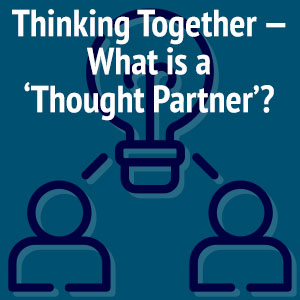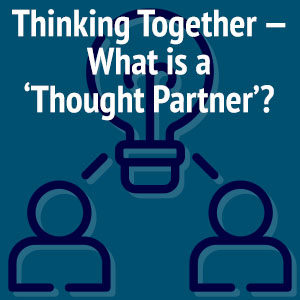
Thinking Together – What is a ‘Thought Partner’?
A “thought partner” is someone other than one’s typical work colleagues who helps organizational leaders to consider an organization’s strategic issues. Thought partners typically add

A “thought partner” is someone other than one’s typical work colleagues who helps organizational leaders to consider an organization’s strategic issues. Thought partners typically add
Emotional Intelligence In a previous blogpost, “Interpersonal Skills Enhance Program Evaluation,” we discussed the importance of interpersonal and relational skills for program evaluators. These skills
It’s sometimes difficult to tell the truth, especially in arenas like the workplace, where inequalities of power and authority make it difficult to “speak truth
Most of us spend a good portion of our lives in organizations or indirectly relating to organizations (businesses, non-profits, civic and legal organizations, religious organizations,
In a previous blog post, “Why You Hate Work” we discussed an article that appeared in the New York Times that investigated the way that the
Program evaluation is seldom simply about making a narrow judgment about the outcomes of a program (i.e., whether the desired changes were, in fact, ultimately
Organizations vs. Programs Organizations are social collectivities that have: members/employees, norms (rules for, and standards of, behavior), ranks of authority, communications systems, and relatively stable

A “thought partner” is someone other than one’s typical work colleagues who helps organizational leaders to consider an organization’s strategic issues. Thought partners typically add
Emotional Intelligence In a previous blogpost, “Interpersonal Skills Enhance Program Evaluation,” we discussed the importance of interpersonal and relational skills for program evaluators. These skills
It’s sometimes difficult to tell the truth, especially in arenas like the workplace, where inequalities of power and authority make it difficult to “speak truth
Most of us spend a good portion of our lives in organizations or indirectly relating to organizations (businesses, non-profits, civic and legal organizations, religious organizations,
In a previous blog post, “Why You Hate Work” we discussed an article that appeared in the New York Times that investigated the way that the
Program evaluation is seldom simply about making a narrow judgment about the outcomes of a program (i.e., whether the desired changes were, in fact, ultimately
Organizations vs. Programs Organizations are social collectivities that have: members/employees, norms (rules for, and standards of, behavior), ranks of authority, communications systems, and relatively stable

A “thought partner” is someone other than one’s typical work colleagues who helps organizational leaders to consider an organization’s strategic issues. Thought partners typically add
Emotional Intelligence In a previous blogpost, “Interpersonal Skills Enhance Program Evaluation,” we discussed the importance of interpersonal and relational skills for program evaluators. These skills
It’s sometimes difficult to tell the truth, especially in arenas like the workplace, where inequalities of power and authority make it difficult to “speak truth
Most of us spend a good portion of our lives in organizations or indirectly relating to organizations (businesses, non-profits, civic and legal organizations, religious organizations,
In a previous blog post, “Why You Hate Work” we discussed an article that appeared in the New York Times that investigated the way that the
Program evaluation is seldom simply about making a narrow judgment about the outcomes of a program (i.e., whether the desired changes were, in fact, ultimately
Organizations vs. Programs Organizations are social collectivities that have: members/employees, norms (rules for, and standards of, behavior), ranks of authority, communications systems, and relatively stable
Please enter your information below to receive a copy of this whitepaper.
Please enter your information below to receive a copy of this whitepaper.
Please enter your information below to receive a copy of this whitepaper.
Please enter your information below to receive a copy of this whitepaper.